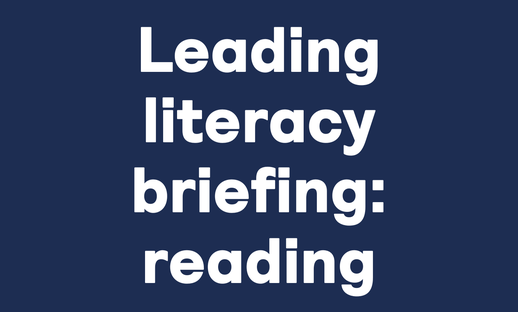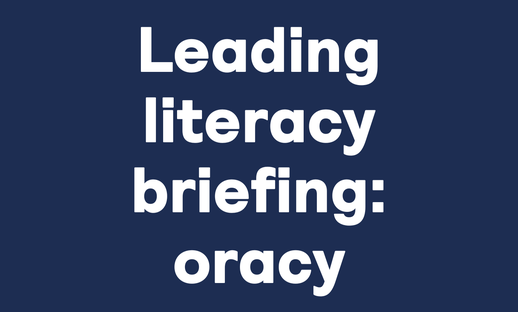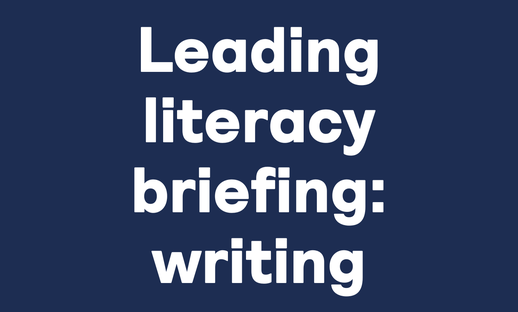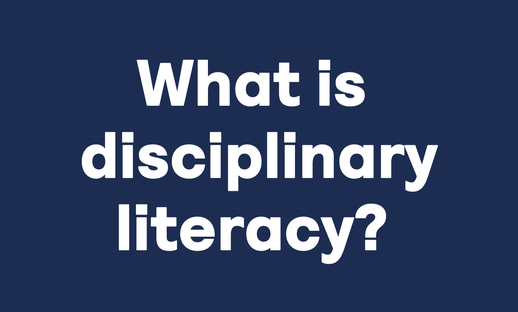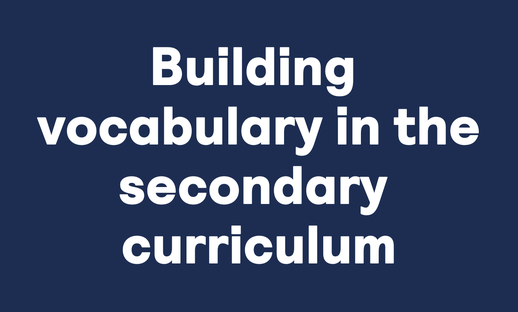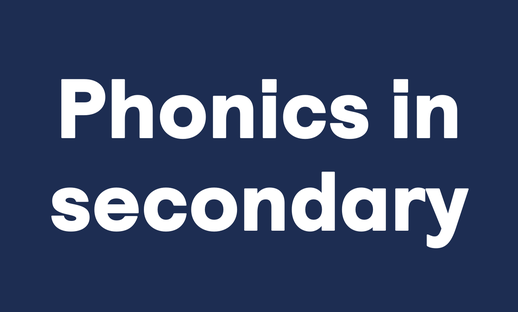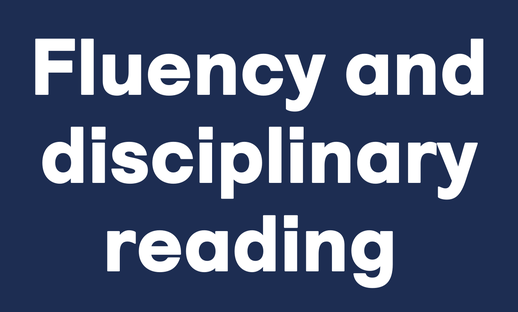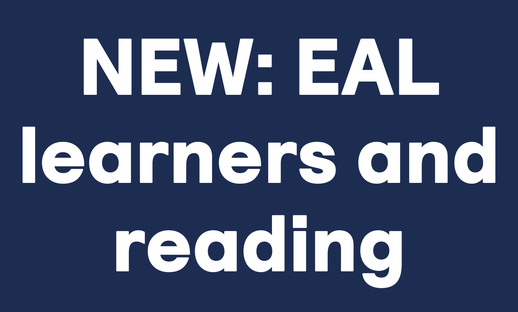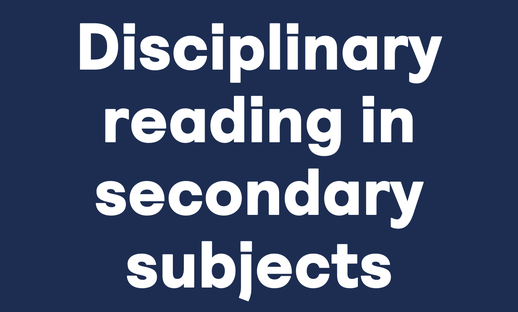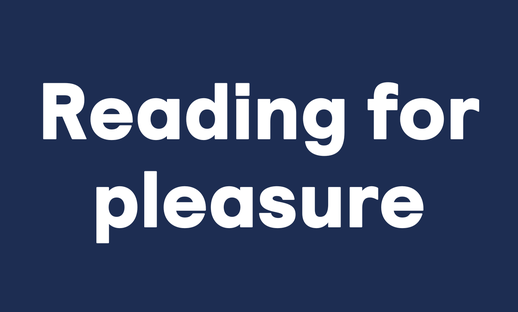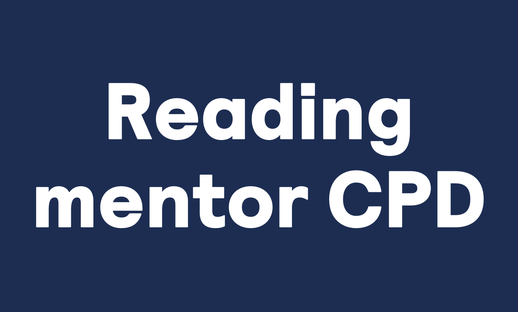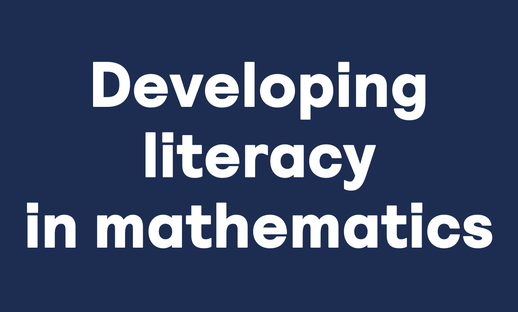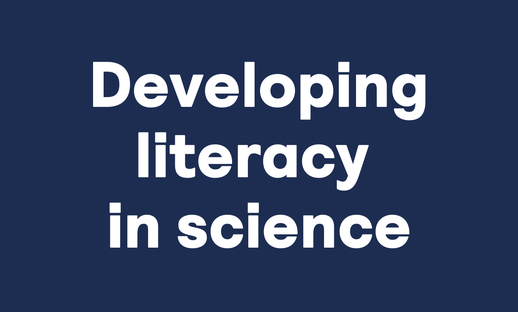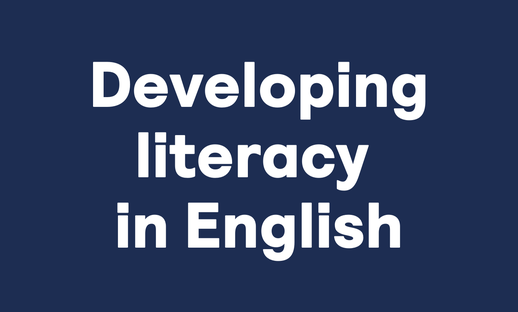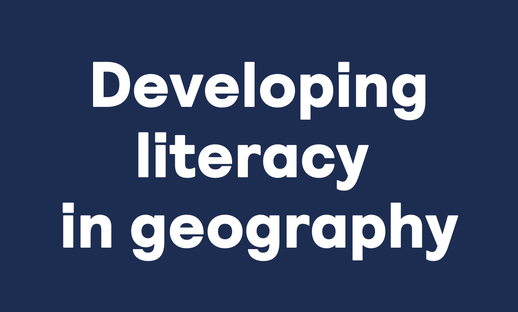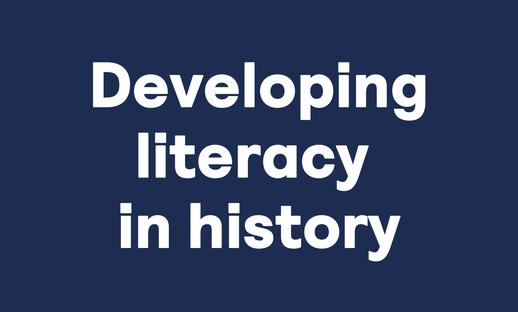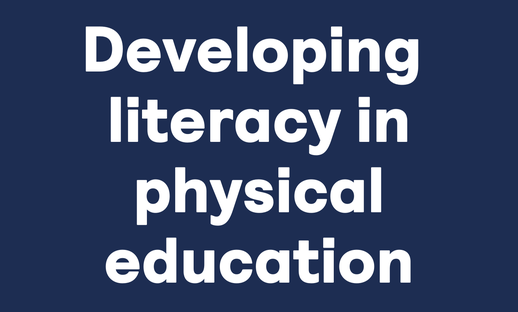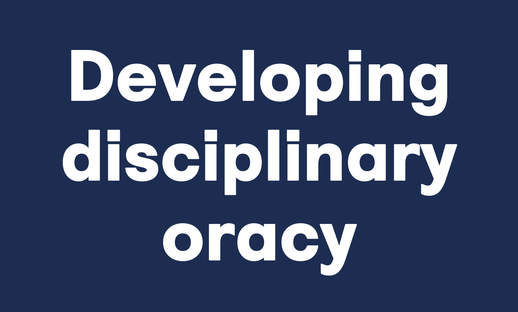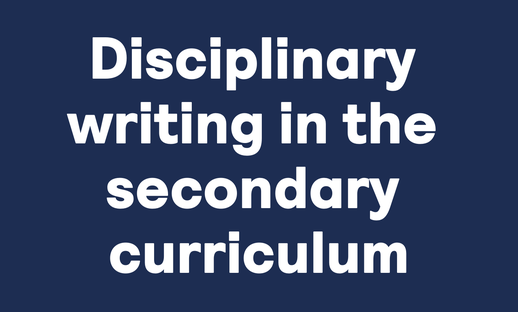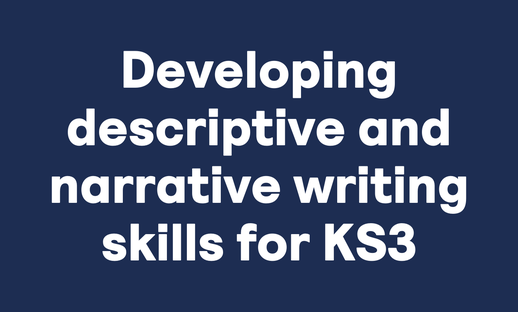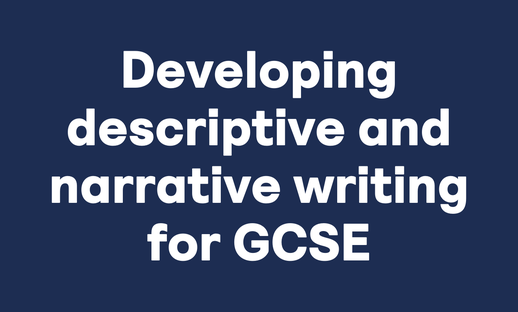Secondary CPD courses
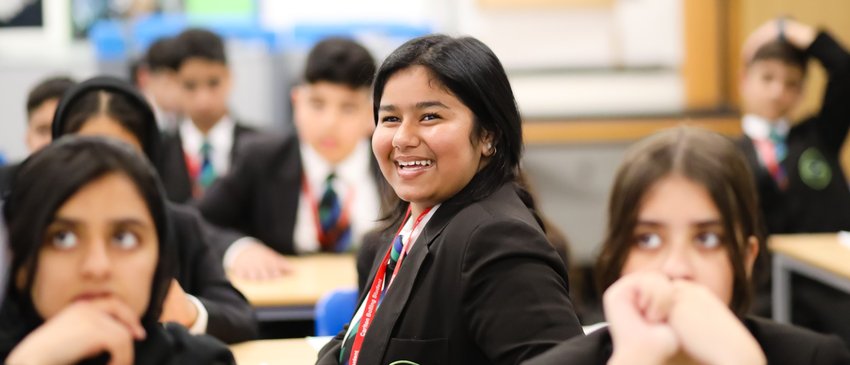
Our Secondary CPD offer
Having good literacy skills is key to academic success. We provide professional development for senior leaders, literacy leads, subject teachers, and librarians to develop a whole-school approach to literacy teaching in secondary schools.
Our training is aligned with evaluation and research from the Education Endowment Foundation and emphasises the practical application of research in the classroom.
We recognise the importance of supporting all practitioners to teach their students how to read, write and communicate effectively in their subject - what is known as disciplinary literacy. We provide a wide range of training to develop confidence, knowledge and understanding of how to teach disciplinary literacy.
We also offer CPD on reading for pleasure, which draws on our own research that when young people enjoy reading, they read more often, helping to build vital reading skills and bringing wider benefits for wellbeing, confidence and learning.
Why attend?
- Build confidence and knowledge in how to teach literacy in your subject
- Gain practical strategies to apply in your teaching
- Interact live with a specialist trainer
- Keep up to date with the latest literacy research
- Receive high-quality resources
Teenage reading seminars
13 and 20 March 2026. Join us for our exclusive National Year of Reading events in March to explore how we can find routes into reading and validate teenage reading experiences.
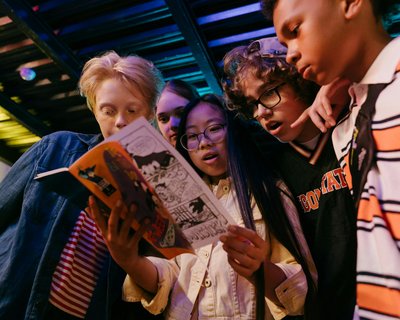
THREE NEW courses for 2026
This year we have THREE new courses to add to your diaries. Why not explore our NEW pathway to support struggling readers in secondary as well as new bespoke training for literacy leaders, EAL teachers and staff who support pupils with EAL in secondary settings.
Scroll down to find out more and book
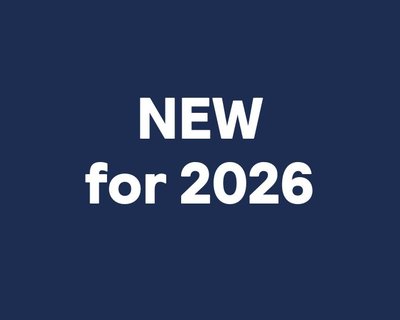
What do schools think of our literacy CPD?
Don't let us be the only people to tell you how brilliant our CPD courses are! Read some feedback from a school who has engaged with a wide-ranging programme of our literacy CPD...
Thank you for all the input in recent years. The training has always been of exceptional quality and pivotal to securing improvements with reading and writing. Our inspection report published this week evidenced literacy as a strengthening area. I thought that it would be nice to show you the tremendous impact of your work! You do an amazing job. We look forward to continuing to work with you in coming years.
Deputy Headteacher, Bishop Vaughan Catholic School
More information on literacy leadership
Read our blogs on literacy leadership for more insight into our CPD and training.
- EEF blog: Co-constructing disciplinary literacy: Rethinking literacy leadership in secondary schools
- Disciplinary literacy: The key to year 7 transition
Explore our literacy CPD training pathways
Each pathway below suggests a sequence of courses to build skills and understanding in a specific literacy area. Each individual course can be purchased either as a scheduled ticketed event or as a group booking on a date of your choice.
- Leading literacy in secondary school
- Introduction to disciplinary literacy
- NEW FOR 2026: Supporting struggling readers
- Disciplinary reading, reading for pleasure and phonics
- Disciplinary literacy in subjects
- Disciplinary oracy in the secondary curriculum
- Disciplinary writing in the secondary curriculum
- Supporting English teachers
Enquiries
For all ticketed events contact:
- Jess Hirst, Project Officer, jess.hirst@literacytrust.org.uk
For all group or whole-school training enquiries contact:
- Nisha Tank, Head of School Improvement, nisha.tank@literacytrust.org.uk
For any other secondary training enquiries please contact:
- Kate Warde, kate.warde@literacytrust.org.uk or call 07742 768406
Explore our literacy training pathways for 2026
Pathway one
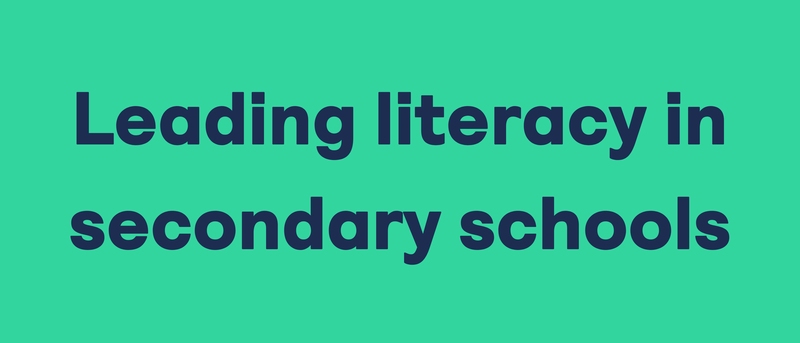
-
Expert guidance and tools on how to lead reading.View details about Leading literacy briefing: reading
-
Expert guidance and tools on how to lead oracy.View details about Leading literacy briefing: oracy
-
Expert guidance and tools on how to lead writing.View details about Leading literacy briefing: writing
Pathway two
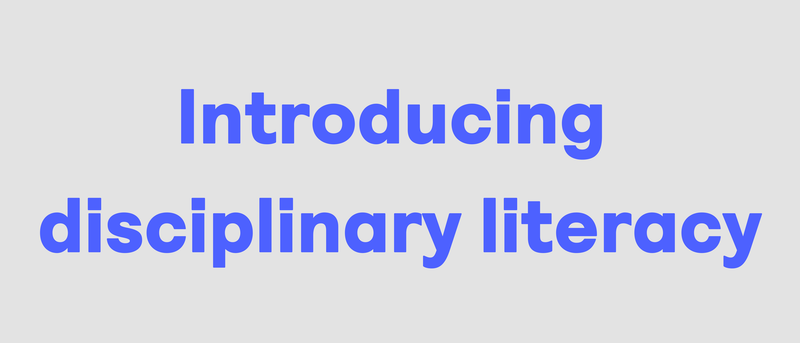
-
New to, or developing your understanding of the concept of disciplinary literacy? This course introduces the concept and explores practical classroom strategies.View details about What is disciplinary literacy?
-
With courses for leaders and subject teachers, learn how to develop effective approaches to teaching academic vocabulary in all subjects.View details about Building vocabulary in the secondary curriculum
Pathway three
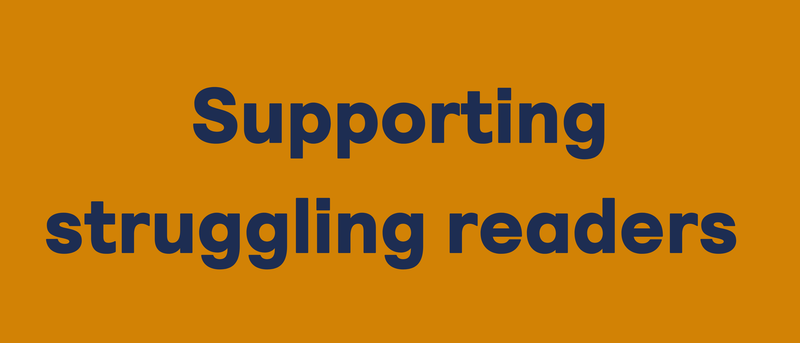
-
Learn to understand phonics and its impact on students' reading and writing skills, while gaining practical strategies for adaptive teaching in secondary classrooms.View details about Spotlight on phonics in secondary
-
Learn why fluency is the bridge to comprehension and how to make it visible in your subject in our 60-minute online spotlight session.View details about Spotlight on fluency and disciplinary reading
Pathway four
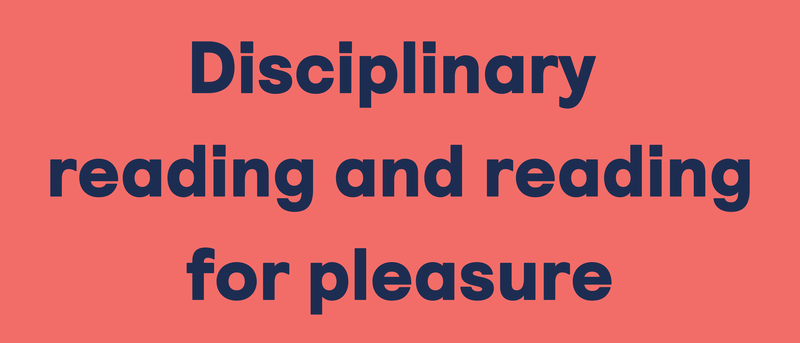
-
A NEW 90-min online course for literacy leaders, EAL teachers and staff who support pupils with EAL in secondary settings.View details about Supporting older learners of English as an additional language
-
Expert guidance and tools on how to lead reading.View details about Leading literacy briefing: reading
-
With courses for leaders and subject teachers, learn how to develop effective approaches to teaching academic vocabulary in all subjects.View details about Building vocabulary in the secondary curriculum
-
Learn how to develop the academic reading skills that students need to access knowledge and concepts in all subjects and do well in their exams.View details about Disciplinary reading in secondary subjects
-
CPD training that explores how to develop a culture of reading for pleasure in school and provides ideas on supporting students’ reading for enjoyment at home.View details about Reading for pleasure
-
Learn how to become a skilled reading mentor and plan effective sessions.View details about Reading mentor CPD
Pathway five
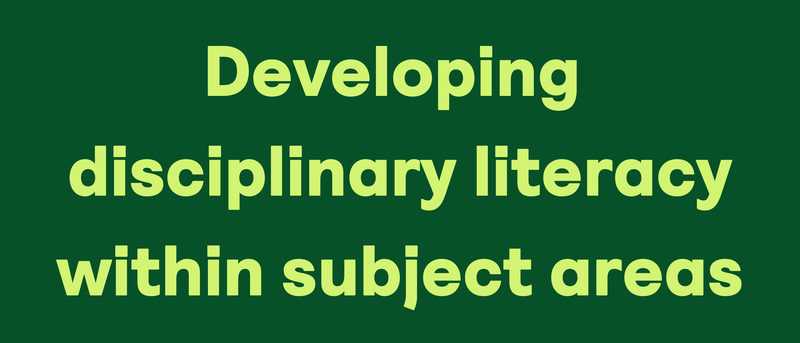
These courses are ideal for practitioners, who are either new to, or developing an understanding of disciplinary literacy and how it can be taught in their subject. They are also suitable for literacy leads or line managers, who are supporting a subject area.
Sessions are live and interactive and grounded in literacy research and theory. They are designed to equip teachers with the knowledge, understanding and skills to teach the reading, writing and communication skills required for their subject and offer practical teaching strategies.
-
Learn how to develop the reading, writing and communication skills to support students’ learning and exam preparation in mathematics.View details about Developing literacy in mathematics
-
Learn how to develop the reading, writing and communication skills to support students’ learning and exam preparation in science.View details about Developing literacy in science
-
Learn how to develop the reading, writing and communication skills to support students’ learning and exam preparation in English.View details about Developing literacy in English
-
Learn how to develop the reading, writing and communication skills to support students’ learning and exam preparation in geography.View details about Developing literacy in geography
-
Learn how to develop the reading, writing and communication skills to support students’ learning and exam preparation in history.View details about Developing literacy in history
-
Learn how to develop the reading, writing and communication skills to support students’ learning and exam preparation in physical education.View details about Developing literacy in physical education
Pathway six
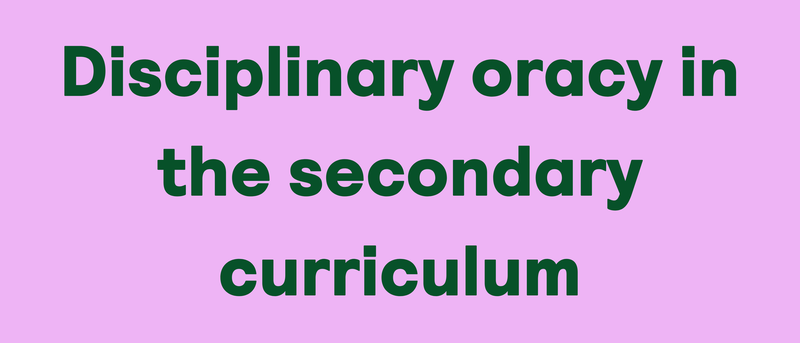
-
Expert guidance and tools on how to lead oracy.View details about Leading literacy briefing: oracy
-
This training explores the role of talk as a tool for learning and promotes different ways of implementing exploratory talk activities in the classroom.View details about Developing disciplinary oracy
Pathway seven
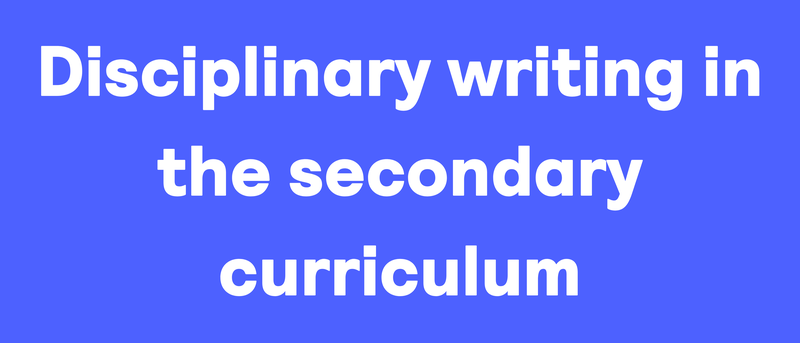
-
Expert guidance and tools on how to lead writing.View details about Leading literacy briefing: writing
-
Learn what the research says works in teaching writing to adolescents and practical ways to apply this to develop students' writing skills in the classroom and for exams.View details about Disciplinary writing in the secondary curriculum
Pathway eight
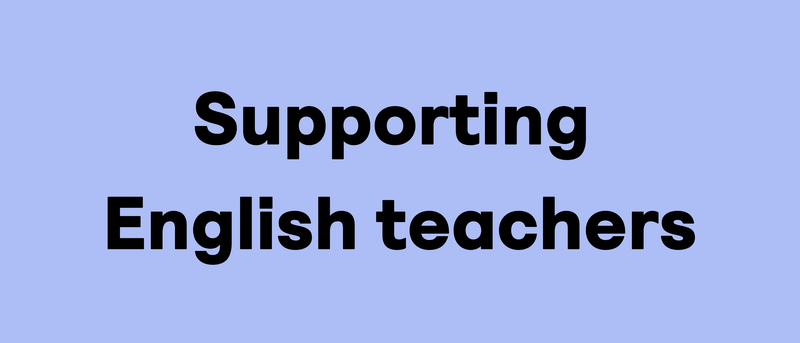
We provide CPD that focuses on developing students’ reading, writing and oracy skills within English.
Our interactive writing CPD explores how to motivate secondary students to write imaginatively and enjoy self-expression. Aligned with current research, both courses highlight ways of teaching writing conventions in the context of creative writing. Participants will try out practical writing strategies that can be immediately deployed in KS3 and KS4 English lessons.
-
Learn how to develop the reading, writing and communication skills to support students’ learning and exam preparation in English.View details about Developing literacy in English
-
Acclaimed spoken-word artist and award-winning poet, Polarbear - aka - Steven Camden exemplifies his powerful talk-based approach to motivate KS3 writers.View details about Developing descriptive and narrative writing for KS3
-
Help KS4 students develop writing skills for the GCSE English exam. Join Booker-nominated author, Wyl Menmuir, to try out a range of practical strategies.View details about Developing descriptive and narrative writing for GCSE
-
CPD training that explores how to develop a culture of reading for pleasure in school and provides ideas on supporting students’ reading for enjoyment at home.View details about Reading for pleasure
